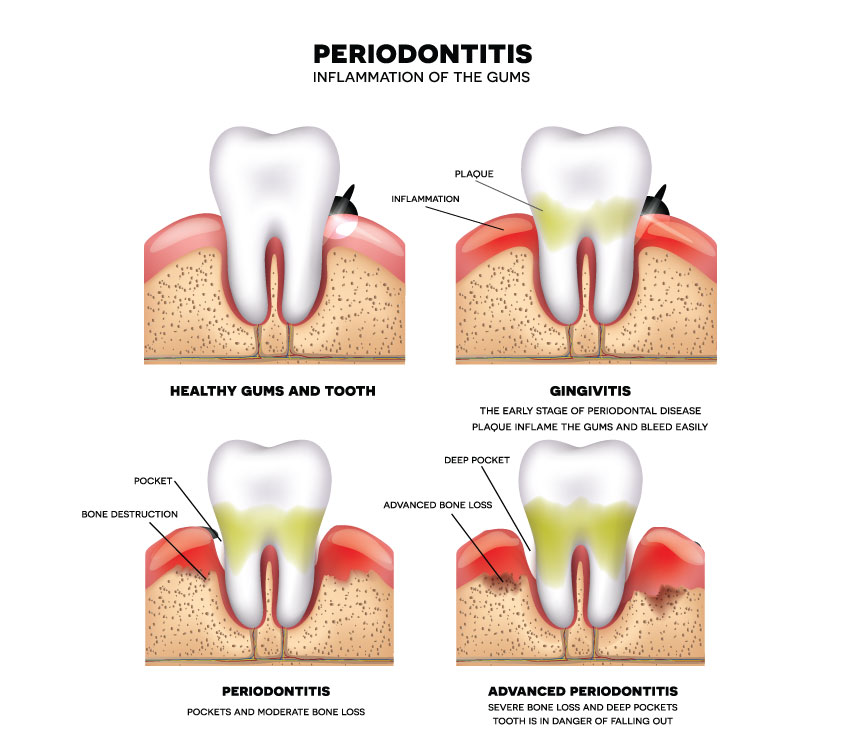Changes in gum health?
Gum disease is the swelling, soreness and infection of the gum . The first stage is called gingivitis – it is when the gums around your teeth become red and swollen. The swollen gums may bleed when you brush your teeth .Gingivitis is reversible with advice and you taking action.
However, it may indicate a deep-seated problem called Periodontitis. The bone and supporting tissues anchoring your teeth in your jaw is lost and your teeth become loose affecting 10% of the Population. . If untreated, your teeth can drift and could eventually fall out.
The major implications are Family History of Perio disease, Stress, Smoking and a link with Diabetes. Stopping smoking is an important part of reducing the risk of further disease.70 % of smokers can lose teeth through smoking links.
What causes it?
Gingivitis and Periodontitis is caused by plaque. Plaque is a thin film of bacteria which builds up on your teeth every half an hour.
You can remove plaque by thorough brushing and cleaning between your teeth two times a day .
Treatment pathways
Your dentist will start with a thorough check up of your teeth and gums. Your dentist will measure the ‘cuff’ of the gum around each tooth to detect bleeding or whether periodontal disease has started.
X-rays may be needed to see the amount of bone that has been lost.
Gingivitis Treatments a session with the hygienist Or Dentist will be needed to thoroughly clean all surfaces of your teeth.
You will be offered advice on specific oral hygiene methods to help control the bacteria that collect on your teeth.
Periodontal Treatments to help with your periodontal disease we will offer further more intensive cleaning of the roots of your teeth ,with the Hygienist or Dentist .This is known as Root Surface Instrumentation (RSI) or Root Planing.
RSI thoroughly debrides the root surface, to remove hard and soft deposits from under the gum line, thus bacteria from within the gum pocket.
We will monitor your plaque levels, any sites of bleeding gum and re-evaluate the original pocket depths from your first visit.
Research has proven that regular 3 monthly Period maintenance appointments are extremely beneficial.


